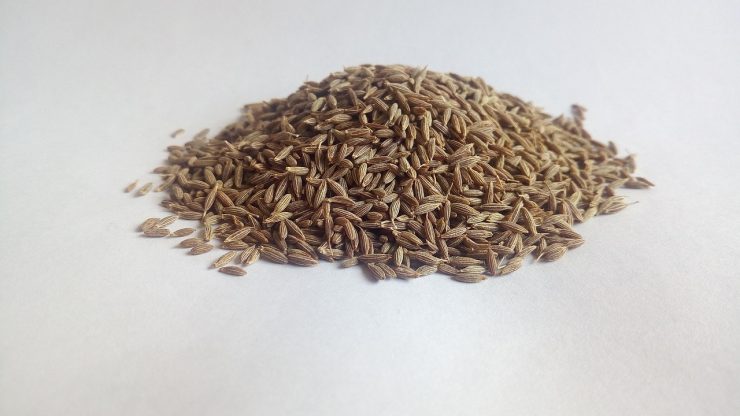Cumin. That warm, earthy, slightly peppery flavor? It’s a staple in curry powder alongside turmeric, and honestly, There isn’t any chili or taco recipe is complete without it. It also pops up in Mexican dishes and even some Middle Eastern ones. Versatile and delicious? Yes, please.
But cumin isn’t just tasty—it’s been used for centuries as both a culinary spice and a natural remedy.
Cumin (aka Cuminum cyminum) comes from a plant in the same family as parsley and carrots, and it grows in places like the Middle East, India, Turkey, and the Mediterranean. The seeds come in the typical greenish-brown variety, but there’s also black cumin (which has its own unique flavor and benefits).
What’s So Great About Cumin?
Cumin seeds are packed with nutrients. We’re talking iron, magnesium, calcium, potassium, manganese, and a bunch of vitamins like A, B1, C, and E. So yeah—it’s not just hanging out in your spice rack for flavor. It’s working overtime.
One of the coolest things about cumin? It can actually help you burn fat more efficiently. No joke. A study out of Iran showed that people who added just one teaspoon of cumin a day to a calorie-controlled diet lost three more pounds than the control group—and nearly tripled their fat loss. They also saw a big drop in triglycerides. Researchers think this might be thanks to cumin’s mix of antioxidants, blood sugar–balancing abilities, and metabolism-boosting powers.
More Reasons to Love Cumin
-
Digestion support: Cumin helps stimulate digestive enzymes (especially from the pancreas), which helps your body break down carbs, proteins, and fats more effectively. In many places, it’s traditional to chew cumin seeds after a meal—not just for better digestion but also to freshen your breath.
-
Gas and bloating relief: Sprinkle a bit on gassy foods like beans or cabbage. Your belly will thank you later.
-
Immune booster: If you feel a cold coming on—or you’ve got a scratchy throat—try this: lightly toast some cumin seeds, then steep them in boiling water with lemon, honey, and maybe a bit of ginger. Sip it as a tea or even inhale the steam. Cumin contains thymol, a natural antimicrobial that helps your body fight off bacteria, viruses, and fungi.
-
Iron support: If you’re vegetarian, vegan, pregnant, or just tend to run low on iron, cumin’s got your back. Not only is it rich in iron, but it also helps your body absorb more iron from other foods.
-
Liver detox & cancer protection: Cumin is full of free radical–fighting antioxidants and has shown protective effects against liver and stomach cancers. It also helps your liver process out toxins—from alcohol to environmental pollutants.
-
Women’s health benefits: Thymol, that same powerhouse compound, is thought to help increase breast milk production (often paired with fenugreek and fennel). Some even say cumin can help induce labor, so if you’re expecting, definitely talk to your healthcare provider first.
And here’s a fun fact: back in the day, cumin was associated with love and fidelity. People carried it in their pockets during weddings and used it as an aphrodisiac (especially when mixed with honey and pepper). Who knows—maybe there’s a little spicy magic in there?
How to Use Cumin
You can find cumin as whole seeds or ground—and both are fantastic. Toast the seeds to bring out their oils and deepen the flavor. Add it to:
-
Curries and stir-fries
-
Chili and stews
-
Guacamole and tacos
-
Black bean soup
-
Roasted veggies
-
Even dark chocolate (seriously, try it!)
Or make a cozy cumin tea for digestion or cold relief.











